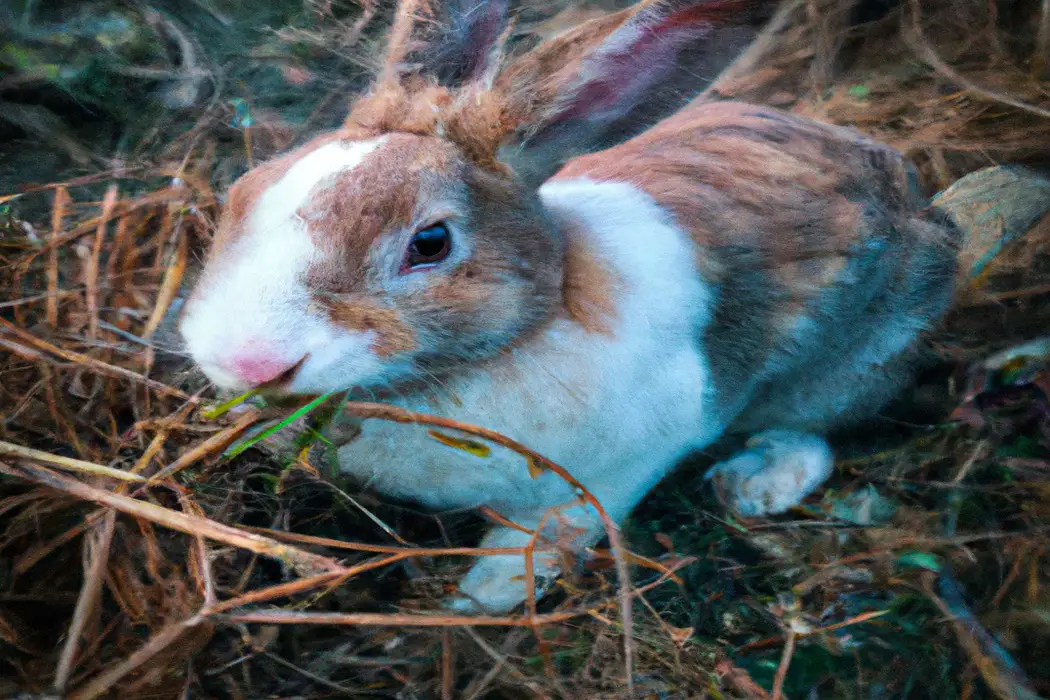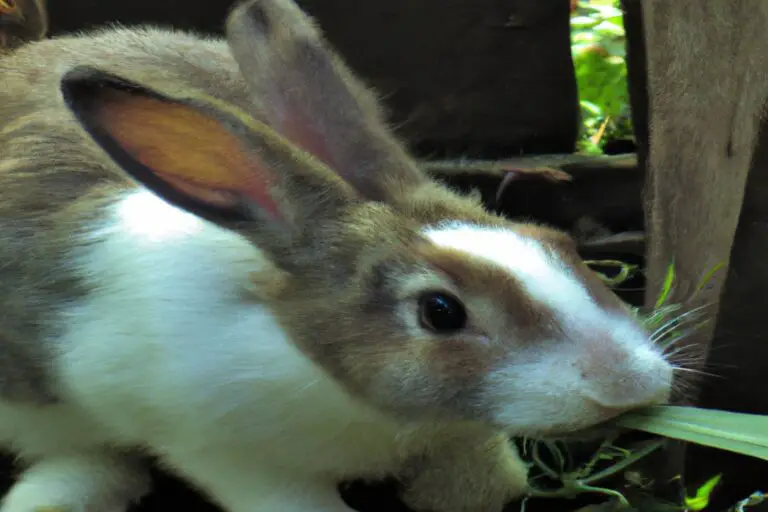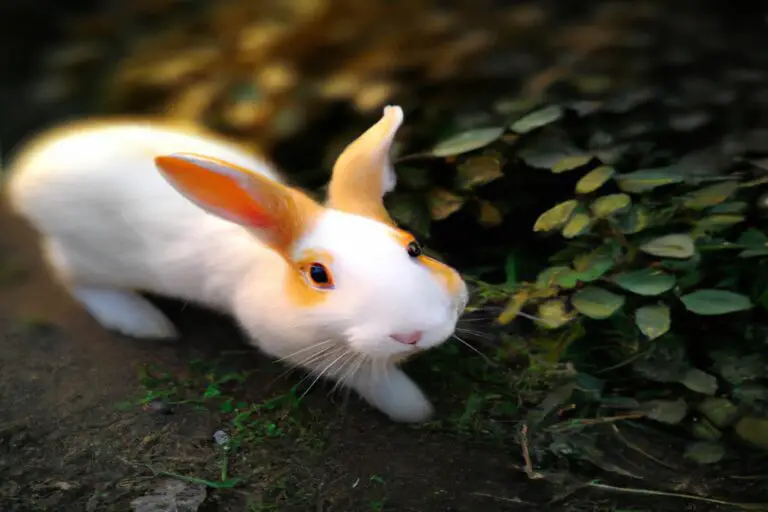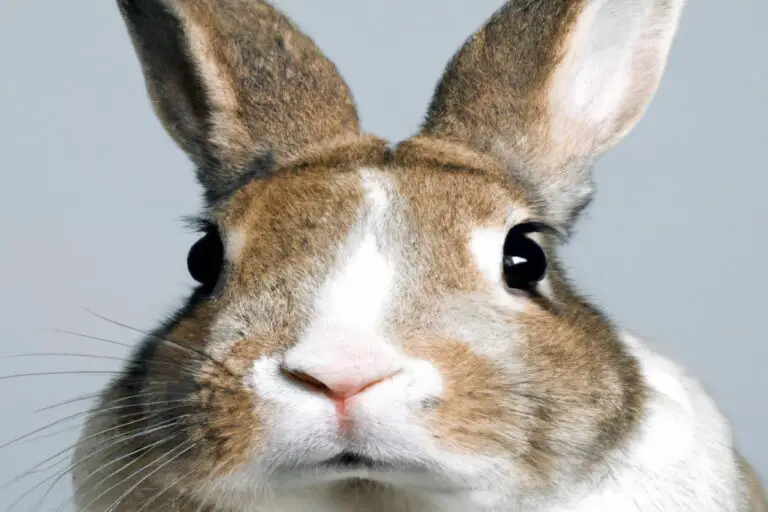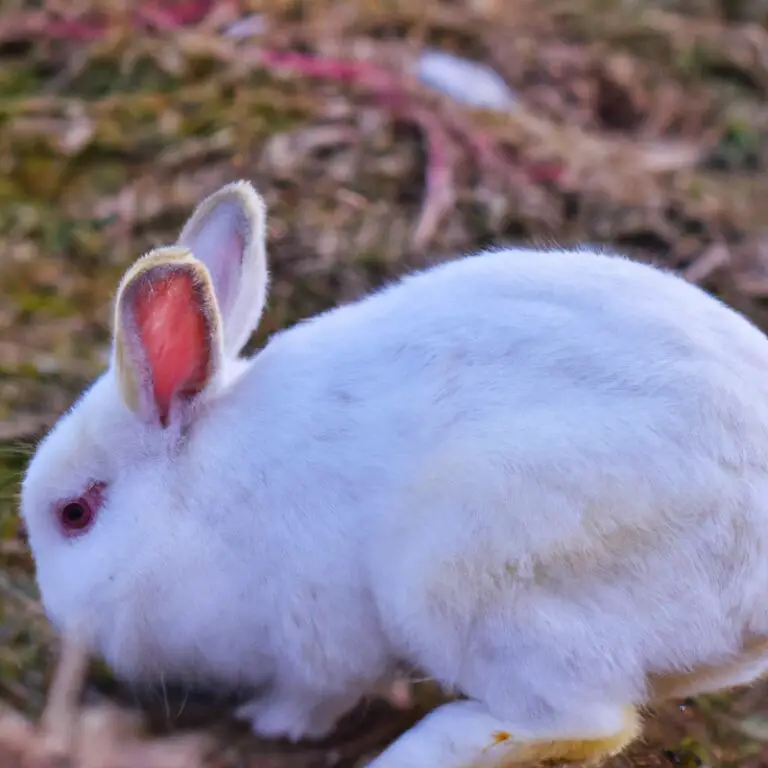Why Is My Rabbit Bleeding From Its Bum – What You Need to Know
Key Takeaways:
- Bleeding from the bunny’s bottom can indicate a serious health issue and requires immediate veterinary attention.
- Possible causes of rectal bleeding in rabbits include infections, gastrointestinal disorders, or trauma.
- Changes in diet or the presence of parasites can also contribute to bleeding from the bunny’s bum.
- Rabbits should be regularly checked by a veterinarian and provided with a balanced diet to prevent potential health problems.
Is your beloved rabbit experiencing an alarming health issue?
You’ve come to the right place! Today, we’re diving into the perplexing topic of why rabbits sometimes bleed from their bums.
It can be a distressing sight, but understanding the possible causes and identifying the symptoms can help you take prompt action.
From digestive issues to urinary tract infections, reproductive problems to trauma or injury, there are several factors that could be at play.
In this article, we’ll explore the rabbit digestive system, the importance of veterinary care, treatment options, and more.
So, let’s roll up our sleeves and tackle this issue head-on!
| Rabbit Bleeding from its Bum |
|---|
| Possible Causes |
| 1. Anal Gland Problems |
| 2. Digestive Disorders |
| 3. Intestinal Parasites |
| 4. Trauma or Injury |
| Recommended Actions |
| 1. Consult a Veterinarian for Diagnosis |
| 2. Follow Veterinarian’s Advice and Treatment |
| 3. Keep the Rabbit’s Cage Clean and Sanitized |
| 4. Provide a Healthy and Balanced Diet |
Understanding Rabbit Health
Understanding Rabbit Health will help you keep your bunny happy and healthy.
Common Rabbit Health Concerns
Rabbits can be prone to several common health concerns. It’s important to be aware of these to provide appropriate care for your furry friend.
Some common rabbit health concerns include:
- Dental problems: Rabbits’ teeth continue to grow throughout their lives. If they are not wearing down properly, they can develop dental issues such as overgrown or misaligned teeth.
- Gastrointestinal stasis: This is a condition where the rabbit’s digestive system slows down or stops functioning properly. It can cause symptoms like loss of appetite, bloating, and decreased fecal output.
- Hairballs: Rabbits groom themselves frequently, which can lead to the accumulation of hair in their digestive tract. Hairballs can cause blockages and other digestive issues.
- Urinary tract issues: Rabbits are susceptible to conditions like urinary tract infections and bladder stones. These can cause symptoms like blood in the urine, frequent urination, and discomfort.
- Parasites: Rabbits can be infested with external parasites like fleas, mites, and ticks, as well as internal parasites like worms. Regular preventative measures and check-ups are important to keep your rabbit parasite-free.
Always consult a veterinarian if you notice any concerning symptoms or changes in your rabbit’s behavior or health.
Importance of Regular Rabbit check-ups
Regular rabbit check-ups are important for ensuring your furry friend’s health and wellbeing.
During these check-ups, a veterinarian will conduct a thorough examination of your rabbit, looking for any signs of illness or injury.
They will also be able to provide important preventative care, such as vaccinations and parasite control.
Regular check-ups can catch health issues early, leading to faster and more effective treatment.
It’s a crucial part of responsible rabbit ownership and can help keep your rabbit happy and healthy for years to come.
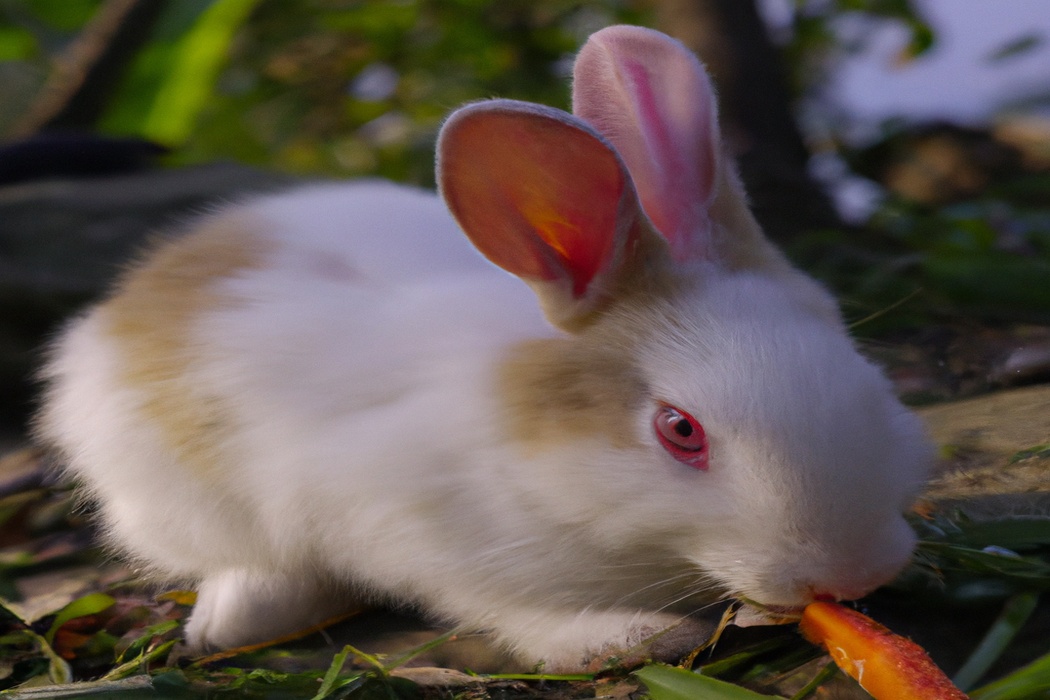
Identifying Rabbit Health Issues
To identify rabbit health issues, pay attention to visible symptoms and indicators.
Visible Symptoms and Indicators
Visible Symptoms and Indicators: If you notice your rabbit bleeding from its bum, it’s important to pay close attention to other visible symptoms and indicators that can provide important clues about their health.
Here are a few things to look out for:
- Blood in the litter or on your rabbit’s fur: If you see fresh or dried blood in your rabbit’s litter box or on their fur, it’s a clear sign that something is not right.
- Changes in behavior: Keep an eye out for any unusual changes in your rabbit’s behavior, such as decreased appetite, lethargy, or hiding more than usual.
- Abnormal discharge: If you notice any abnormal discharge from their bum, such as mucus or pus, it could be a sign of an underlying infection or injury.
- Swollen or painful area: If your rabbit’s bum appears swollen or if they show signs of discomfort when you touch the area, it’s important to seek veterinary advice.
Remember, these visible symptoms and indicators are not definitive diagnoses, but they can help you determine if your rabbit needs immediate veterinary attention.
It’s always best to consult with a professional to ensure the health and well-being of your furry friend.
Possible Causes of Rabbit Bleeding
Some possible causes of rabbit bleeding include digestive issues, urinary tract infections, reproductive problems, and trauma or injury.
Digestive Issues
Digestive issues can be one of the causes of bleeding in rabbits. Common digestive problems include gastrointestinal stasis, which is a slowdown or stoppage of the digestive system, and diarrhea.
These conditions can lead to discomfort and irritation in the rabbit’s intestines, resulting in bleeding from the anus.
Diet changes, stress, and underlying health issues can contribute to digestive problems in rabbits. It is important to consult a veterinarian for proper diagnosis and treatment.
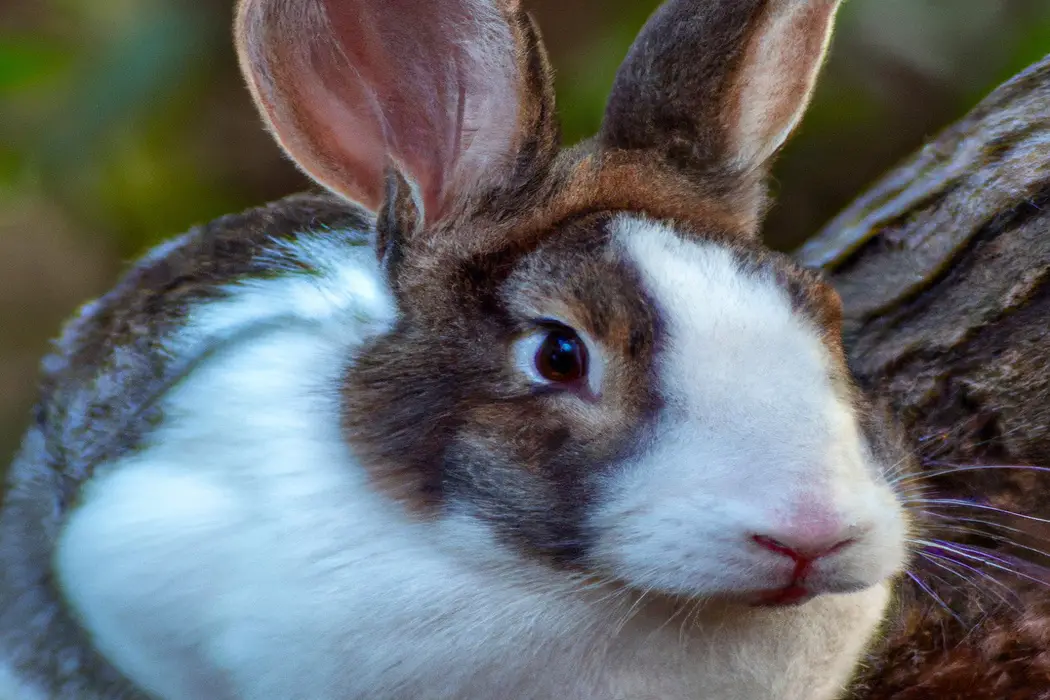
Urinary Tract Infections
Urinary tract infections (UTIs) in rabbits can be quite uncomfortable for them. UTIs can occur due to bacterial imbalances in their urinary system, causing inflammation and bleeding.
It’s important to provide your rabbit with a proper diet and access to clean drinking water.
Additionally, maintaining their living environment clean and ensuring they have enough exercise can help prevent UTIs. If you notice any signs of UTIs, such as blood in their urine or changes in their bathroom habits, it’s best to consult with a veterinarian for proper diagnosis and treatment.
Reproductive Problems
Reproductive problems in rabbits can occur for various reasons:
- Uterine Cancer: Unspayed female rabbits have a higher risk of developing uterine cancer, which can lead to bleeding.
- Testicular Cancer: Unneutered male rabbits may also develop testicular cancer, which can cause bleeding from the genitals.
- Infections: Infections in the reproductive organs, such as pyometra or orchitis, can result in bleeding.
- Trauma: Injuries to the reproductive area, including trauma during mating or physical trauma, can cause bleeding.
- Tumors or Polyps: Growths in the reproductive tract, such as tumors or polyps, may lead to bleeding.
If you notice your rabbit bleeding from its bum, it is essential to consult a veterinarian as soon as possible. They can diagnose the underlying reproductive problem and provide appropriate treatment options.
Trauma or Injury
Trauma or injury can be a possible cause if you notice your rabbit bleeding from its bum. Rabbits are small and delicate creatures, so accidents happen.
They may injure themselves by jumping or falling from heights, getting caught in tight spaces, or being attacked by predators.
Additionally, rough handling or accidentally stepping on your rabbit can also result in injury. If you suspect trauma or injury, it is crucial to seek veterinary care immediately to assess the extent of the damage and provide appropriate treatment.
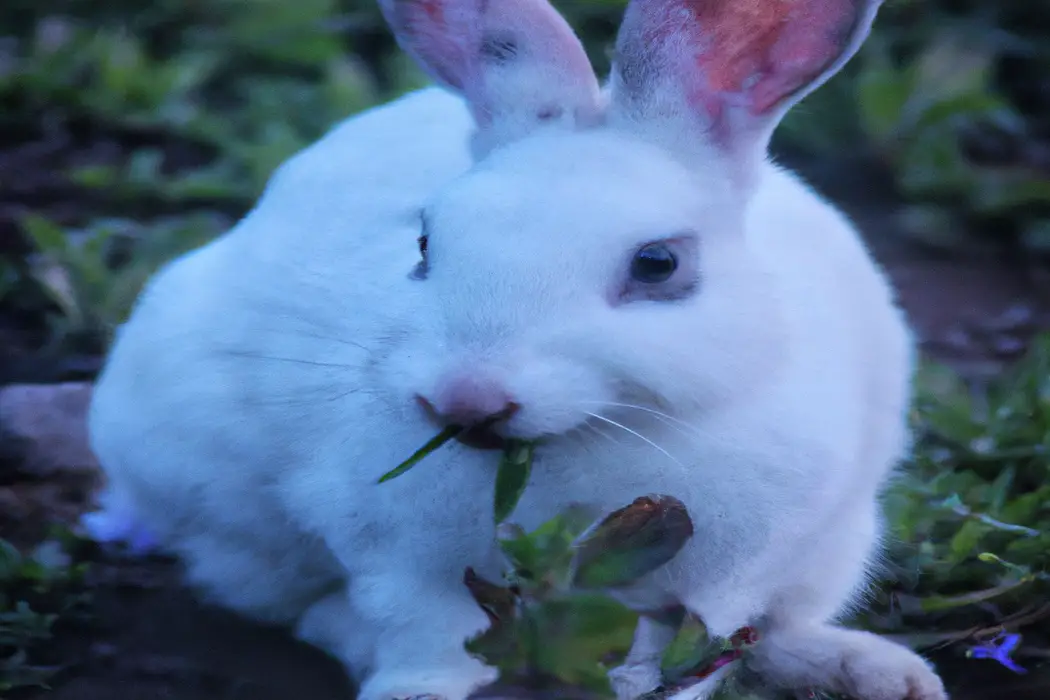
Understanding Rabbit Digestive System
Understanding Rabbit Digestive System: Learn about the normal digestive processes in rabbits and potential digestive problems they may face.
Normal Digestive Processes
In a rabbit’s digestive system, food passes through several stages. First, they chew their food and mix it with saliva.
Next, it travels down the esophagus into the stomach, where it gets broken down further by stomach acids.
Then, it moves into the small intestine where nutrients get absorbed. Finally, the waste is passed into the large intestine and formed into fecal pellets.
The digestive process in rabbits is efficient and helps them extract as many nutrients as possible from their food.
Potential Digestive Problems
Potential digestive problems in rabbits can arise from various factors.
One common issue is gastrointestinal stasis, where the digestive system slows down or stops altogether.
This can be caused by a diet lacking in fiber, stress, or dental problems.
Another problem is the formation of hairballs, especially in long-haired breeds.
Hairballs can block the intestinal tract and lead to serious complications.
Additionally, diarrhea can occur due to an unbalanced diet, bacterial infections, or changes in food.
If you notice any signs of digestive problems in your rabbit, such as changes in fecal consistency, appetite loss, or unusual behavior, it’s important to seek veterinary care promptly.
The Importance of Veterinary Care
It is important to seek veterinary care for your rabbit to ensure their health and well-being.
Seeking Professional Help
If you notice your rabbit bleeding from its bum, it is crucial to seek professional help as soon as possible. Find a reputable veterinarian who specializes in exotic animals, including rabbits.
A professional will be able to examine your rabbit, diagnose the cause of the bleeding, and recommend the appropriate treatment.
Remember, it’s always better to be safe than sorry when it comes to your pet’s health. Don’t hesitate to reach out to a professional for their expertise.
Early Intervention and Treatment
Early intervention and treatment are key when it comes to your rabbit’s health.
If you notice your rabbit bleeding from its bum, it is important to act quickly.
Contact a veterinarian as soon as possible for a proper diagnosis and treatment plan.
Bleeding can be a sign of a serious underlying condition, so don’t delay in seeking professional help.
Remember, the earlier you intervene, the better the chances of a positive outcome for your rabbit.
Preventive Measures
Preventive Measures: To prevent your rabbit from bleeding from its bum, there are a few important steps you can take:
- Provide a balanced diet: Feed your rabbit a diet that includes plenty of fresh hay, leafy greens, and high-quality pellets. Avoid giving foods that are high in sugar or unhealthy treats.
- Maintain good hygiene: Regularly clean your rabbit’s living area, including the litter box, to prevent infections. Make sure to keep your rabbit’s bottom clean and dry, as moisture can lead to skin irritation.
- Avoid injuries: Rabbits are prone to injuries, so ensure their environment is safe and free of sharp objects. Be cautious when handling your rabbit to avoid accidental falls or injuries.
- Regular check-ups: Bring your rabbit to a veterinarian for routine check-ups to detect any health issues early on. Vaccinations and parasite prevention treatments are also crucial to keep your rabbit healthy.
- Exercise and mental stimulation: Provide plenty of opportunities for exercise and mental stimulation to prevent obesity and boredom. This can include supervised free-roaming time, interactive toys, and playtime with you.
Remember, taking preventive measures can help keep your rabbit healthy and minimize the risk of bleeding from its bum. If you notice any signs of bleeding or other health concerns, don’t hesitate to consult a veterinarian for further guidance.
Treatment Options for Rabbit Bleeding
There are several treatment options available for rabbit bleeding, including medications and antibiotics, surgery if necessary, and home care and supportive measures.
Medications and Antibiotics
Medications and antibiotics can be used to treat bleeding in rabbits.
Your veterinarian may prescribe medications such as anti-inflammatory drugs to reduce swelling and promote healing.
Antibiotics might also be given to prevent or treat any underlying infections.
It is important to follow the prescribed dosage and duration of treatment for the best results.
Remember to consult your veterinarian before giving any medications to your rabbit, as some human medications can be harmful to them.
Surgery if Necessary
If your rabbit is experiencing severe bleeding from its bum, surgery may be necessary to address the issue.
The decision for surgery will depend on the underlying cause and severity of the bleeding, as determined by a veterinarian.
Surgery may be needed to remove a tumor, repair an injury, or address an internal issue causing the bleeding.
The veterinarian will guide you through the process and provide the best course of action to ensure the health and well-being of your rabbit.
Remember to consult with a professional for a proper diagnosis and treatment plan.
Home Care and Supportive Measures
When it comes to home care and supportive measures for your rabbit experiencing bleeding from its bum, there are a few steps you can take to help manage the situation. First, keep your rabbit’s living area clean and ensure it has a comfortable and stress-free environment.
Provide fresh water and a balanced diet consisting of hay, vegetables, and a limited amount of pellets.
Avoid any food that may worsen the bleeding, such as high-sugar or processed snacks. Additionally, seek veterinary guidance for further assessment and treatment options.
Overall, providing a safe and nurturing environment for your rabbit will aid in its recovery.
Frequently Asked Questions
What should I do if my rabbit is bleeding from its bum?
If you notice that your rabbit is bleeding from its bum, it’s important to take immediate action.
Here’s what you need to do:
- Assess the situation: Carefully observe the extent and severity of the bleeding. Is it a small amount or continuous? Is your rabbit in pain or distress?
- Contact a veterinarian: Reach out to a rabbit-savvy veterinarian as soon as possible. They will be able to provide guidance and schedule an emergency appointment if necessary.
- Prepare for the vet visit: Prior to the appointment, gather any relevant information about your rabbit’s diet, behavior, and general health. This will help the veterinarian determine the possible causes and facilitate the diagnosis.
- Keep your rabbit calm and comfortable: While waiting for the vet appointment, create a quiet and stress-free environment for your rabbit. Ensure they have access to water and food, and monitor their behavior closely.
Remember, bleeding from the bum can be a sign of an underlying health issue, such as gastrointestinal problems or an injury.
Prompt veterinary care is crucial to identify and address the cause of the bleeding.
Can I treat my rabbit’s bleeding at home?
Yes, it is possible to treat your rabbit’s bleeding at home to some extent, but it is important to seek veterinary help as soon as possible.
In the meantime, you can help control the bleeding by applying gentle pressure with a clean cloth or gauze.
Do not use any medications without consulting a vet first, as some can be harmful to rabbits.
Make sure to keep your rabbit calm and try to prevent further trauma or injury.
Remember, professional veterinary care is crucial for proper diagnosis and treatment.
Are there any preventive measures to avoid rabbit bleeding?
To prevent rabbit bleeding, it’s important to take certain measures. Here are some preventive steps you can take:
- Provide a balanced diet: Ensure your rabbit’s diet includes plenty of hay and fresh vegetables to promote digestive health and prevent gastrointestinal issues that may lead to bleeding.
- Avoid sharp objects: Remove any sharp objects or loose wires from your rabbit’s environment, as they may accidentally injure themselves and cause bleeding.
- Regular check-ups: Schedule regular visits to the vet for a thorough check-up. A vet can detect any potential health issues early on and provide proper treatment to prevent bleeding.
- Proper handling: Handle your rabbit with care and avoid excessive force or rough handling that may cause injuries and bleeding.
- Keep the living area clean: Regularly clean and disinfect your rabbit’s living area to prevent infections and reduce the risk of bleeding.
Remember, maintaining a healthy and safe environment for your rabbit is crucial in preventing bleeding incidents.
When should I seek veterinary assistance for my rabbit?
If your rabbit is bleeding from its bum, it is important to seek veterinary assistance as soon as possible.
Bleeding can be a sign of a serious condition or injury, such as a urinary tract infection, gastrointestinal issue, or injury to the rectum or anus.
Additionally, rabbits are known to hide their pain, so it’s crucial to get them evaluated by a professional who can provide the necessary treatment and care.
Remember, prompt veterinary attention is key to your rabbit’s health and well-being.
Final Verdict
It is important to remember that rabbit health should never be taken for granted.
Regular check-ups can help identify potential health issues early on.
When it comes to identifying rabbit bleeding, visible symptoms and indicators play a crucial role.
Digestive issues, urinary tract infections, reproductive problems, trauma, or injury can be possible causes.
Understanding the rabbit’s digestive system is key in preventing and addressing bleeding.
Veterinary care is essential in seeking professional help, early intervention, and preventive measures.
Treatment options may include medications, surgery, and home care.
Finally, it is crucial to seek veterinary assistance if your rabbit is bleeding from its bum.
Remember, the well-being of our furry friends should always be a top priority.

